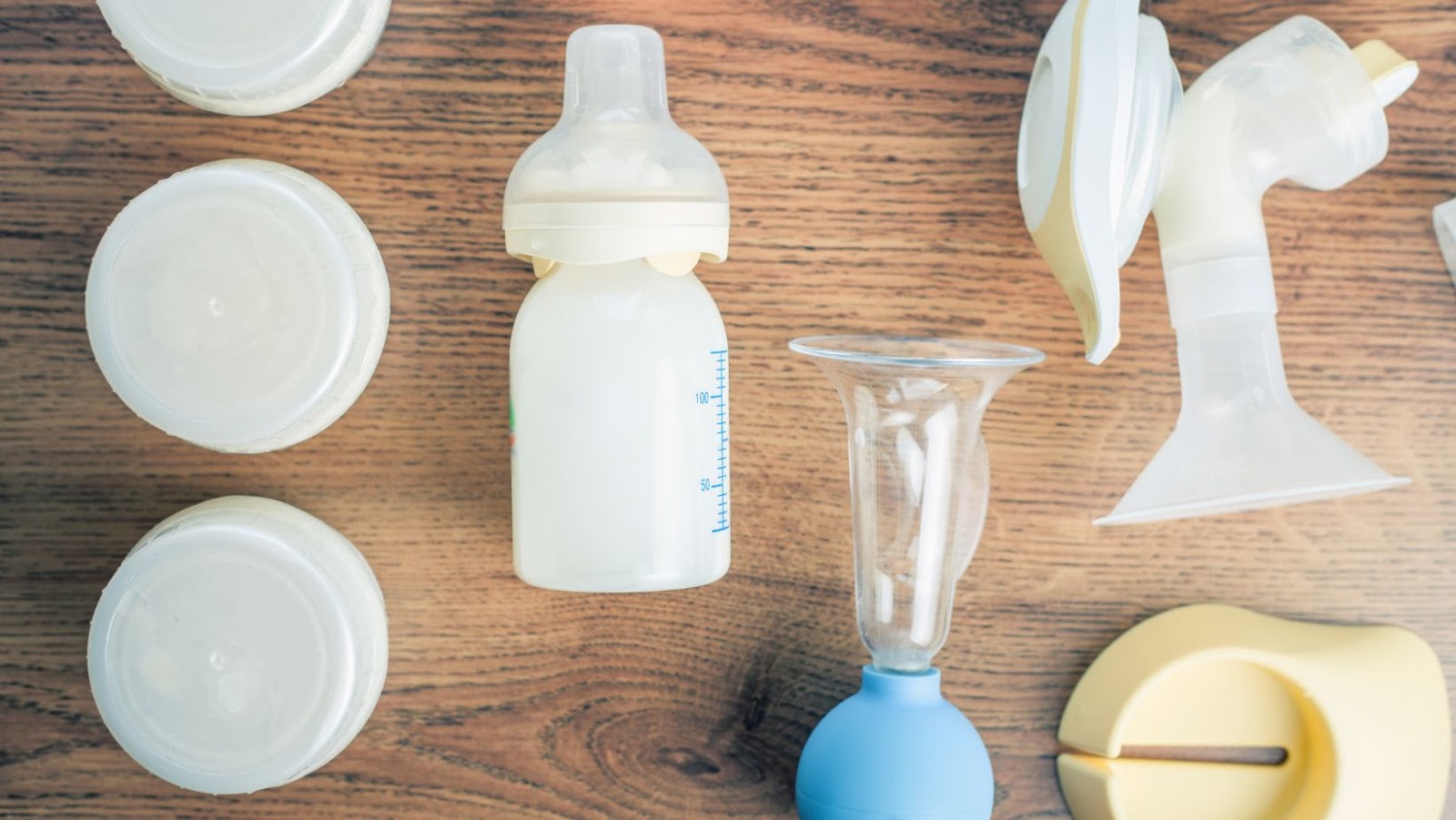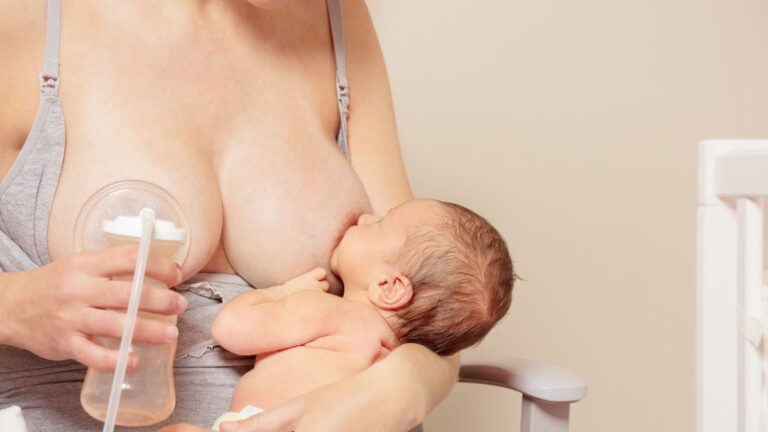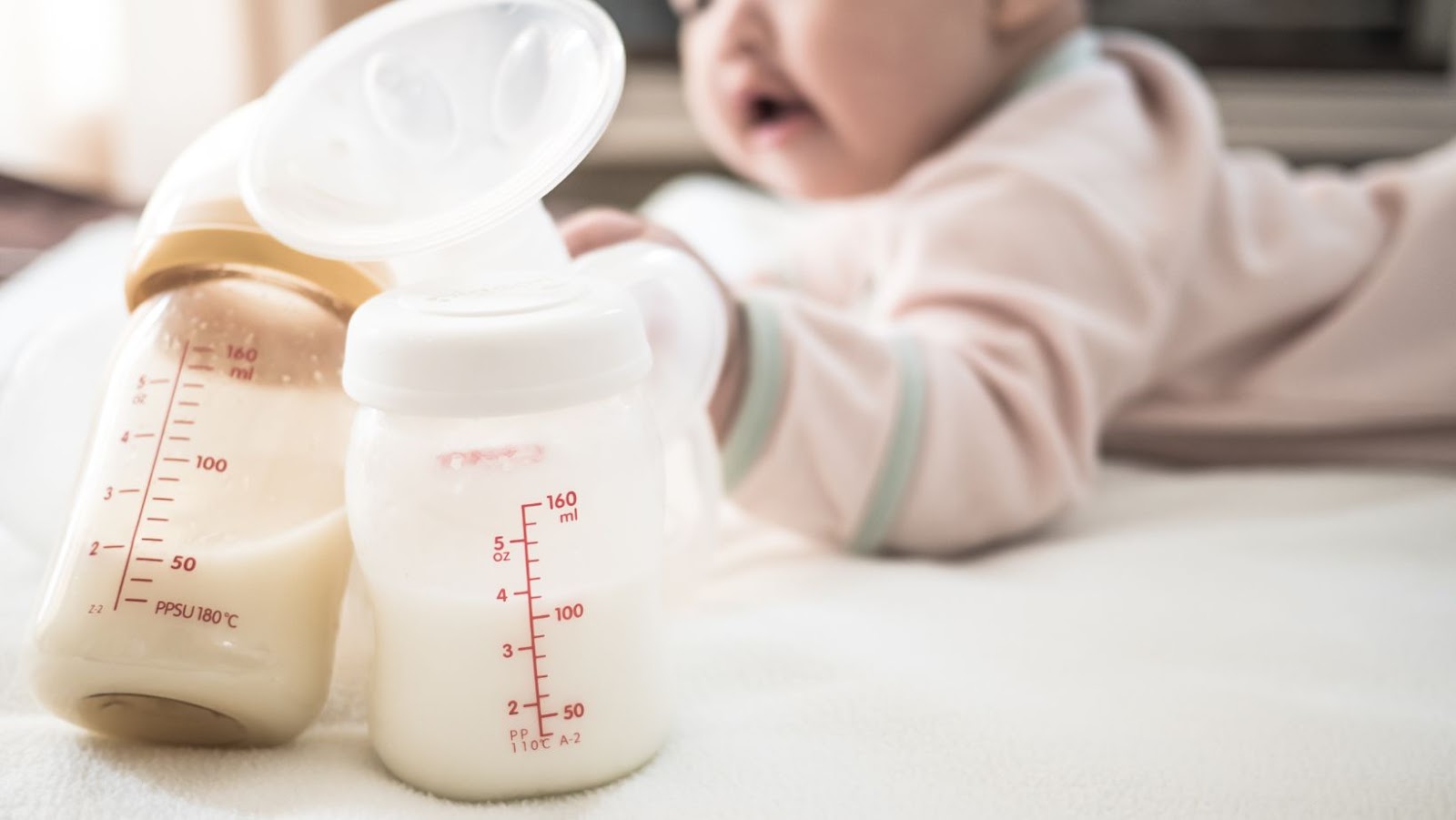When deciding whether to breast or bottle-feed their newborn, parents may find themselves inundated with information regarding the pros and cons of each option. As an expert, I believe it’s important for parents to understand the benefits and drawbacks of each choice before making a decision that is best for their family.
Breastfeeding has numerous benefits for both the mother and child. Research shows that breast milk contains vital nutrients that enhance a child’s immune system, making them less likely to contract illnesses such as ear infections and respiratory diseases. Mothers who breastfeed may also experience a reduction in their risk of developing certain cancers later in life.
 Breast vs Bottle Feeding Pros and Cons
Breast vs Bottle Feeding Pros and Cons
Breastfeeding is a natural and biological way to feed your baby that provides numerous benefits for both mother and child. However, it’s not always possible or feasible for every family. Here is some basic breast vs. bottle feeding pros and cons to consider:
Pros:
- Breast milk is a complete food that contains all the nutrients, vitamins, and antibodies your baby needs to develop and thrive.
- Breastfeeding strengthens the bond between mother and baby and promotes emotional closeness.
- Breast milk is easy to digest and reduces the risk of gastric problems, allergies, and infections.
- Breastfeeding may reduce the risk of postpartum depression and certain types of cancer in mothers.
- Breastfeeding is cheaper than formula feeding and helps to save money in the long run.
Cons:
- Breastfeeding may be painful, overwhelming, and time-consuming for some mothers, especially during the first weeks.
- Breastfeeding may not always be possible or practical due to medical, physiological, or social factors, such as insufficient milk supply, sore nipples, or return to work.
- Breastfeeding may restrict the mother’s diet and lifestyle, as certain foods and activities can affect the baby’s digestive system and health.
- Breastfeeding may cause discomfort and embarrassment in public places or in front of others who don’t support it.
- Breastfeeding may limit the father’s involvement in the feeding process and bonding with the baby.
In summary, breastfeeding has many advantages that may contribute to the healthy and happy growth of your baby, but it also has certain challenges and drawbacks that may require patience, support, and understanding from both yourself and your family.

Pros and Cons of Bottle Feeding
When it comes to feeding their babies, mothers have two main options – breast or bottle feeding. While breast milk is considered the ideal source of nutrition for babies, there are situations where it’s not always the best option. Therefore, many parents choose to bottle feed their babies with formula milk or a combination of breast and formula feeding. Here are the pros and cons of bottle feeding:
Advantages of Bottle Feeding:
- More control over feeding schedule: With bottle feeding, parents have more control over feeding frequency and the amount of milk the baby receives in each feeding than with breastfeeding. This can be beneficial for those who need to monitor their baby’s intake closely or want to establish a feeding routine that suits their lifestyle.
- Easier for multiple caregivers: Breastfeeding requires the presence of the mother, whereas bottle feeding allows other caregivers to feed the baby while the mother is away. This can be helpful for working moms or dads who want to take an active role in their baby’s feeding routine.
- For some, a more practical option: For some mothers, breastfeeding may not be possible or practical due to medical, physical, or personal reasons. Using formula milk as an alternative can be a safe and viable option to ensure that the baby gets the necessary nutrients they need to grow and develop.
Disadvantages of Bottle Feeding:
- Higher cost: Buying formula milk can be expensive and may be an additional financial burden for families who are already on a tight budget.
- Equipment and preparation: Bottle feeding requires bottles, nipples, and other necessary equipment that needs to be washed and sterilized frequently. This can be time-consuming and requires extra effort and planning.
- Less immunity: Breast milk contains antibodies that can help your baby fight against infections and other diseases. Formula supplements may not have these antibodies, which can weaken the baby’s immune system.
In conclusion, bottle feeding has both advantages and disadvantages, and parents should consider their personal circumstances and what’s best for their baby when deciding between breast or bottle feeding. It’s important to consult with a healthcare professional before making any decisions that will impact the health of the baby.

Factors to Consider When Choosing Between Breastfeeding and Bottle Feeding
When making the decision between breastfeeding and bottle feeding, there are several factors to consider. It’s important to take your own needs and lifestyle into account, as well as weigh the benefits and drawbacks of each method. Here are some factors to consider when making your decision:
- Nutrition: Breast milk is the most natural and complete form of nutrition for your baby, providing the necessary nutrients for growth and development. However, the formula can provide a similar level of nutrition, making it a good alternative for mothers who are unable to breastfeed or choose not to.
- Convenience: Breastfeeding can be more convenient, as it eliminates the need for cleaning and preparing bottles. However, it may not always be possible to breastfeed in public, which can limit social outings. Bottle feeding can provide more flexibility for busy mothers who may choose to pump their breast milk for use later or to have someone else feed their baby if needed.
- Cost: Breastfeeding is generally free, while formula can be quite expensive. However, breastfeeding mothers may incur some costs for accessories such as breast pumps and storage containers.
- Health benefits: Breastfeeding has many health benefits for both mother and baby, such as reduced risk of infections and illness, improved digestion, and a stronger bond between mother and child. Bottle feeding also has its advantages, such as allowing other caregivers to share feeding responsibilities and providing a clearer idea of exactly how much milk the baby is consuming.
Ultimately, the decision between breastfeeding and bottle feeding comes down to personal preference and circumstances. It’s important to weigh the pros and cons of each method and make an informed decision that is best for you and your baby.


 Breast vs Bottle Feeding Pros and Cons
Breast vs Bottle Feeding Pros and Cons